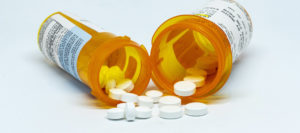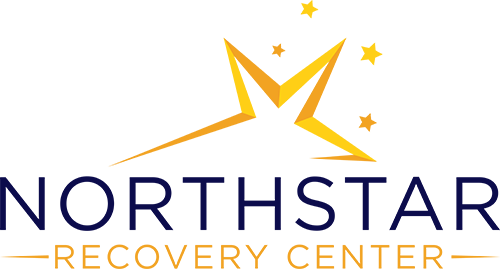
Depression: How Self-Medication Leads To Substance Use Disorder
Depression: How Self-Medication Leads To Substance Use Disorder
Northstar Recovery CenterPHP and IOP Addiction Treatment in Massachusetts
According to the World Health Organization, there are roughly 280 million people that suffer from depression around the world. This is a mood disorder that can result from a complex stew of psychological, social, and biological factors. Sometimes, individuals with depression will choose to self-medicate rather than receive treatment for their depression.
Self-medication refers to using drugs or alcohol to help cope with the symptoms of a disease or disorder. In the case of depression, an individual might drink or do drugs in order to temporarily escape their feelings of sadness and emptiness.
While these drugs might offer brief relief, in the long run, they can make mood disorders like depression worse. Using drugs and alcohol can also result in dependence or addiction, which can be very damaging to both your mental and physical health in addition to your personal and professional life.
Are you wondering what you need to know about self-medication and depression? Let’s take a look.
What Is Depression?
Depression is a mood disorder that is characterized by feelings of sadness, emptiness, and irritability. It also comes along with a loss of interest in activities that one once loved. While it’s normal for everyone to feel this way every once in a while, depressive episodes last for at least two weeks at a time.
Depression can also bring about other symptoms, including:
- Hopelessness about the future
- Poor concentration
- Disrupted sleep
- Feeling low-energy
- Thoughts about death or suicide
While depressed people are by no means inherently addicts or vice versa, this mood disorder commonly co-occurs with drug and alcohol addiction.
What Does It Mean to Self-Medicate?
If a person has depression or another health condition and uses drugs or alcohol to help manage the symptoms, this is known as self-medicating. There are two primary reasons why people tend to self-medicate:
- Substances can appear to help make the symptoms of a mental health disorder or illness more manageable in the moment, allowing for temporary relief
- Many individuals who have trouble with drug and alcohol abuse don’t know how else to cope with their symptoms
Mood and anxiety disorders are among some of the mental illnesses that lead people to self-medicate. An individual doesn’t need a formal diagnosis in order to self-medicate. People can turn to drugs and alcohol during difficult life events in a way that also qualifies as self-medicating.
According to one study, grief results in increased drug and alcohol use. People who have experienced trauma or who have been in an abusive relationship are at an increased risk of using drugs or alcohol to deal with their difficult situation.
The Dangers of Self-Medicating
Self-medication can become a slippery slope for many individuals. While using drugs or alcohol might temporarily reduce unpleasant symptoms of depression, the long-term consequences can be devastating. Certain drugs, such as cannabis, might actually worsen symptoms of depression while also causing other negative side effects in both your health and your life.
When you don’t get proper treatment for your depression, the feelings that you have could intensify and result in danger to yourself or others.
If you choose to self-medicate instead of seeking treatment, you are facing a number of risks, including:
- Self-diagnosing yourself incorrectly
- Not receiving appropriate advice and treatment right away
- Drugs interacting in a dangerous way
- The risk of abuse and dependence
- The worsening of your depressive symptoms
- Potential adverse reactions
- The masking of serious disorders and diseases
Even if you believe you are self-medicating in a tempered and controlled way, things can quickly spiral out of control.
Common Drugs That Are Used to Self-Medicate for Depression
When people don’t know how to cope with their troubled feelings or life situation, they can turn to self-medication. Depending on the person and their circumstance, there are a number of common drugs that are used for this purpose.
Alcohol
Alcohol can temporarily help to lower anxiety, decrease inhibitions, and increase happiness. For this reason in addition to its wide availability makes it a common substance that is used to self-medicate.
Benzodiazepines
Benzodiazepines are tranquilizers that are prescribed for a number of conditions, including anxiety, muscle relaxation, alcohol withdrawal, and insomnia. You might recognize the names Xanyx and Valium as common types of this medication. Benzo abuse is, unfortunately, more common than you might assume, and this type of drug is highly addictive.
Opioids
Opioids like prescription painkillers and heroin are also used by some people to self-medicate for depression. These drugs act on the central nervous system and can temporarily:
- Reduce tension
- Blunt stress and anxiety
- Increase relaxation
However, opioids are highly addictive. Using them comes along with a number of potentially devastating consequences.
What Are the Treatment Options?
If you are seeking treatment for both depression and addiction, you will want to find treatment centers that focus on co-occurring disorders. This way, you can ensure that you receive treatment for both your mood disorder and your substance abuse problem. It’s important to address both issues, as otherwise, you can end up falling into the same cycles when you’ve finished treatment.
Partial hospitalization programs (PHP) is a type of addiction treatment where you have a number of treatment sessions every week but don’t live at the hospital. Intensive outpatient programs (IOP) require less of a time commitment meaning that patients can still engage in their daily life more easily.
Is It Time for You to Receive the Treatment You Need for Depression?
Self-medication for depression is not a healthy long-term option for anyone. If self-medication has left you with a dependence or addiction to substances, there is help for you!
At Northstar Recovery Center, we offer addiction treatment programs in Southborough, MA. We offer partial hospitalization programs and intensive outpatient programs, including evening IOP and virtual IOP.
Is it time for you to get your life back on track? If so, contact us today!
WHO WE ARE
Northstar Recovery Center in Southborough, MA is made up of a team of experienced, dedicated, and compassionate addiction treatment professionals. We want to see our community heal from the effects of the opioid epidemic, alcohol addiction, and other substance use disorders.
Day Treatment Program in MA
The Day Treatment in Massachusetts, also referred to as PHP (Partial Hospitalization Program) or IOP (Intensive Outpatient Program), is the highest level of care offered at Northstar Recovery Center. This addiction treatment option encompasses comprehensive clinical care and behavioral therapies. In the initial stages of recovery from addiction, it's crucial to have robust support to navigate both physical and emotional challenges. Our dedicated team at Northstar Recovery Center, located in Southborough, MA, and West Springfield, MA, is committed to assisting you in establishing a solid foundation for a lifelong recovery from addiction to drugs and alcohol. Clients typically visit our addiction treatment center in Massachusetts each weekday for several hours, engaging in counseling sessions and other necessary interventions. This approach ensures a balanced and effective recovery process, tailored to individual needs within the framework of Day Treatment.
Individual, Group, and Family Counseling in Massachusetts
Addiction thrives in isolation, which is why group counseling sessions are a foundational part of our addiction treatment plans. In group sessions, you’ll gain perspective on your struggles with substance abuse and can connect with others who understand your experiences. Family counseling can help your loved ones understand the disease of addiction, navigate conflict and build healthier relationships. In individual counseling sessions, you’ll be able to work through personal issues like past trauma with the help of an experienced therapist.
Contact Northstar Recovery Center
Let us guide you on your journey to recovery from addiction. Connect with our team today.




 One of the most widely prescribed medications for anxiety is
One of the most widely prescribed medications for anxiety is 